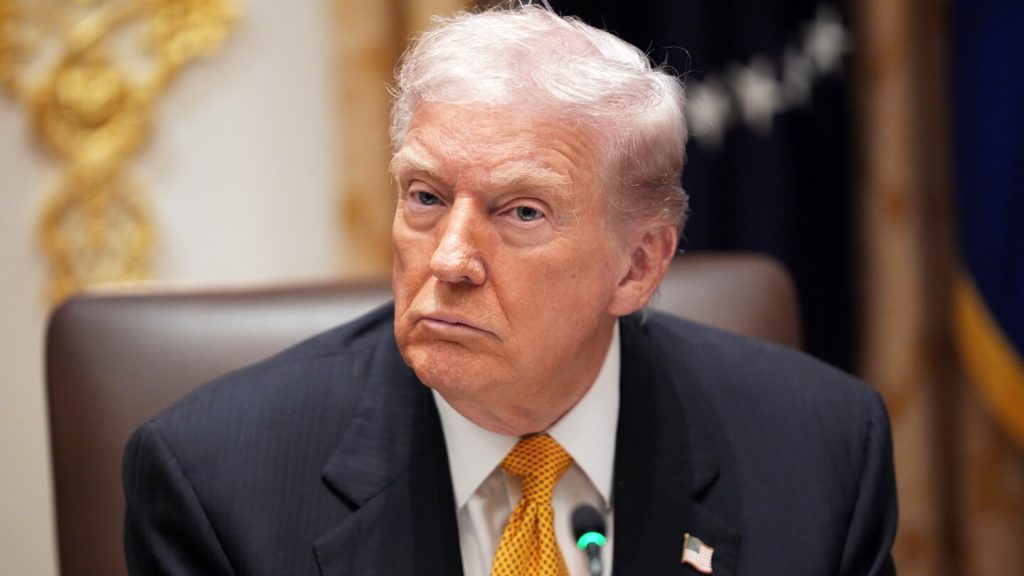Listen to the article
President Donald Trump announced Friday that no U.S. officials will attend this year’s Group of 20 summit in South Africa, citing alleged mistreatment of white farmers in the country. This decision marks a significant diplomatic snub to the international gathering of the world’s largest economies.
Trump, who had previously stated he would not personally attend the annual summit, has now extended the boycott to include Vice President JD Vance, who was originally scheduled to represent the United States in Trump’s absence. A source familiar with Vance’s plans confirmed the change.
“It is a total disgrace that the G20 will be held in South Africa,” Trump declared on his social media platform. In his statement, the president referenced what he characterized as “abuses” against Afrikaners, including violence, deaths, and land confiscation.
This position reflects a long-standing concern of the Trump administration regarding the treatment of white South African farmers. Earlier in his presidency, Trump’s team reduced the annual refugee admission cap to 7,500 people, indicating that a significant portion would be allocated to white South Africans allegedly facing persecution.
The South African government has consistently rejected these characterizations. President Cyril Ramaphosa has directly addressed Trump’s claims, stating they are “completely false.” South African officials have pointed out that white citizens generally maintain a significantly higher standard of living than Black residents, even three decades after the end of apartheid.
Demographic and economic data support South Africa’s position. Despite making up less than 10% of the population, white South Africans continue to control a disproportionate share of the country’s wealth and land. The government’s land reform efforts, while controversial, have proceeded through legal channels rather than through the violent seizures Trump has suggested.
The diplomatic tension comes at a critical time for international economic cooperation. The G20 represents about 85% of global GDP, 75% of international trade, and two-thirds of the world’s population. The absence of U.S. representation could undermine collective efforts to address pressing global economic challenges.
During an economic speech in Miami earlier this week, Trump escalated his rhetoric by suggesting South Africa should be expelled from the G20 entirely. This statement, along with Friday’s boycott announcement, signals a potential shift toward isolationism in U.S. foreign policy.
The administration’s stance appears to be part of a broader pattern. Earlier this year, Secretary of State Marco Rubio boycotted a G20 meeting for foreign ministers, objecting to an agenda focused on diversity, inclusion, and climate change initiatives.
International relations experts have expressed concern that the U.S. boycott could damage diplomatic relationships not just with South Africa, but with other G20 members as well. Some analysts suggest the move might diminish American influence in shaping global economic policy at a time when international cooperation is increasingly vital.
The G20, established in 1999 initially as a forum for finance ministers and central bank governors following the Asian financial crisis, expanded to include heads of state after the 2008 global financial crisis. It has since become a critical platform for coordinating responses to international economic challenges.
South African officials have not yet formally responded to Trump’s latest announcement, but the country has been preparing extensively to host the high-profile summit. The absence of U.S. representation will likely cast a shadow over the proceedings and potentially complicate efforts to reach consensus on agenda items.
As global markets continue to face uncertainty, the diplomatic rift between the U.S. and South Africa adds another layer of complexity to an already challenging international economic landscape.
Fact Checker
Verify the accuracy of this article using The Disinformation Commission analysis and real-time sources.




7 Comments
This is a concerning diplomatic development. The allegations about mistreatment of white farmers in South Africa are serious and merit close examination. However, a unilateral boycott of the G20 summit could further strain relations and hinder progress on important global issues. I hope the US and South Africa can find a constructive way forward.
This is a worrying development that could have significant geopolitical and economic ramifications. The US administration’s allegations regarding white farmers in South Africa deserve serious examination, but a unilateral boycott of the G20 is an extreme measure that may backfire. I hope the two countries can find a way to engage productively on this issue through diplomatic channels.
The allegations of mistreatment of white farmers in South Africa are certainly concerning, but a diplomatic boycott of the G20 seems like an overreaction. The G20 is a crucial forum for addressing global issues like commodity markets, energy policy, and economic cooperation. The US should participate to voice its concerns and seek constructive solutions.
While the concerns about land rights and farmer safety are understandable, boycotting the G20 seems like an extreme response that could backfire. The G20 is a critical forum for addressing global challenges like commodity supply chains, energy transitions, and economic cooperation. The US should engage to advocate its position, not disengage.
I agree, disengaging from the G20 is unlikely to resolve the underlying issues. Diplomacy and constructive dialogue are needed to find durable solutions that respect the rights and security of all South Africans, regardless of background.
As an investor in mining and energy equities, I’m worried that this diplomatic dispute could disrupt important trade and investment relationships. The G20 plays a key role in coordinating policies that impact commodity supply chains and energy transitions. The US should rethink this boycott and find ways to engage constructively with South Africa and other G20 members.
This is a complex and sensitive geopolitical issue. I would encourage the US administration to pursue fact-finding and engage South Africa through official channels to better understand the situation, rather than taking such an adversarial public stance. Maintaining open lines of communication is important, even when there are disagreements.